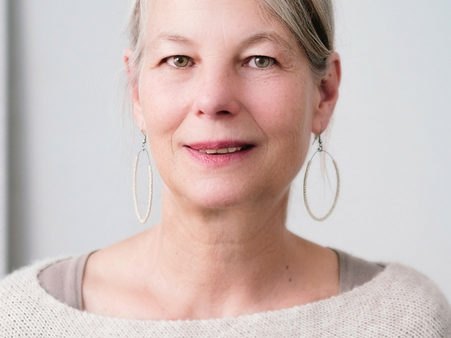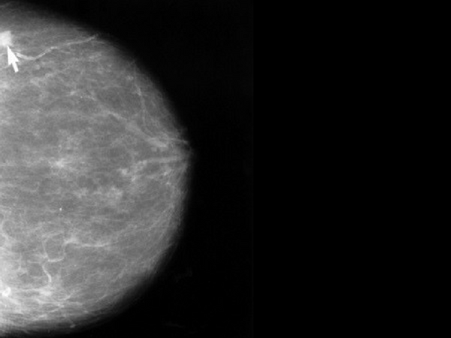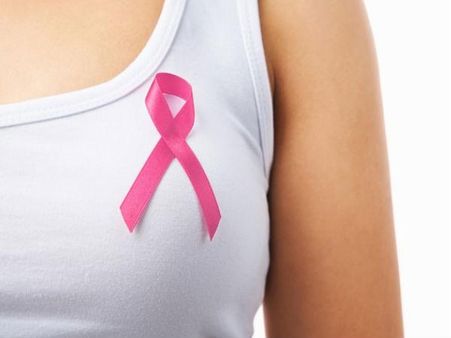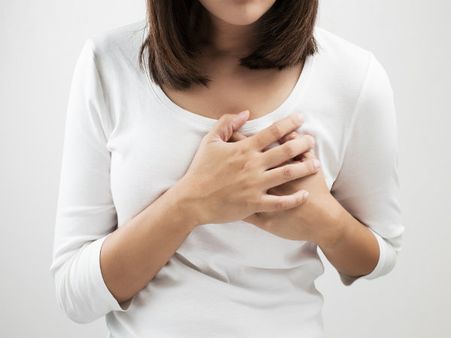Just In
- 2 hrs ago

- 3 hrs ago

- 7 hrs ago

- 12 hrs ago

Don't Miss
- Technology
 Apple Reportedly Skipping M3 Mac Mini Models: M4-Powered Variants Could Arrive in Late 2024
Apple Reportedly Skipping M3 Mac Mini Models: M4-Powered Variants Could Arrive in Late 2024 - Movies
 Anne Hathaway REVEALS 'Gross' Hollywood Audition Practices, Know What Bizarre Thing Happened With Oscar-Winner
Anne Hathaway REVEALS 'Gross' Hollywood Audition Practices, Know What Bizarre Thing Happened With Oscar-Winner - Finance
 1:1 Bonus Issue: Engineering Stock Turned Ex-Bonus On April 23, Hits New 52-Week High; Gives 268% Returns
1:1 Bonus Issue: Engineering Stock Turned Ex-Bonus On April 23, Hits New 52-Week High; Gives 268% Returns - Education
 Mizoram 10th Results to be declared Soon at mbse.edu.in, Check the Tentative Date
Mizoram 10th Results to be declared Soon at mbse.edu.in, Check the Tentative Date - News
 Not Hardik Pandya, Rohit Sharma Is Still Captain For Many Mumbai Indian Players: Irfan Pathan
Not Hardik Pandya, Rohit Sharma Is Still Captain For Many Mumbai Indian Players: Irfan Pathan - Sports
 IPL 2024: 'Sunil takes offf the pressure from Me' - KKR star Phil Salt on dynamic partnership
IPL 2024: 'Sunil takes offf the pressure from Me' - KKR star Phil Salt on dynamic partnership - Automobiles
 Suzuki Access Electric To Electrify The Indian Scooter Market By 2024
Suzuki Access Electric To Electrify The Indian Scooter Market By 2024 - Travel
Kurnool's Hidden Gems: A Guide To Exploring India's Lesser-Known Treasures
11 High Risk Groups for Breast Cancer — Which One Are You In?
High risk groups for breast cancer.

If you are a woman, you need to read this.
Breast cancer is one of the deadliest cancers that affect women around the world. And sometimes even after getting an early diagnosis, there is no guarantee that you will survive it.
So if you are a woman, you need to read this article. Because in this piece we are going to discuss the various risk factors for breast cancer and how you can reduce your risk if you fall in one or more of these high-risk groups.
Please note: Not falling in any of the following high-risk groups does not mean that you are not at risk of developing breast cancer. So to know more, we recommend you read the following article as well to stay on high alert (especially if you are 30 years or older).


High Risk Group #1: Genetic Mutations
Scientists have identified many genes whose mutations lead to breast cancer. But the most important ones on the list are the BRCA1 and BRCA 2 genes.
Why? Because 45 - 65% women who have this genetic mutation are known to develop breast cancer.
And though genetic mutations and family history of breast cancer account for only 13% of all cases diagnosed, it is still a significant risk factor for those women who have multiple breast cancer sufferers in their family or have a mother, sister, or first cousin who were diagnosed with it quite early in life.


High Risk Group #2: 50+ Age Group
Less than 5% women under the age of 50 are affected by breast cancer in the U.S. But the risk substantially increases once you hit the golden jubilee of your life.
In fact, studies have shown that the risk of developing breast cancer is the highest in women who are 70+ in age.
And while black women do tend to get diagnosed earlier than whites, the risk margin is still above 50 years of age.

High Risk Group #3: Late or No Pregnancy
Women who have a child after 30 years of age are at a 40% greater risk of developing breast cancer as compared to those women who deliver a child by the age of 20 - 25.
This is because genetic mutations become more common as you age, and any mutation in your breast will multiply and grow when your breasts grow during pregnancy.
That's the main reason why women are at a very high risk of developing breast cancer immediately after they have delivered a child (if they are 30+ or older). And also why this risk falls as the years go by without any incident.

High Risk Group #4: Early Menarche or Late Menopause
Long-term exposure to estrogen and progesterone increases the risk of developing breast cancer. Maybe that's why women who get their first period (a.k.a menarche) before the age of 12 and those who get their menopause after the age of 55 are known to have a high risk of developing breast cancer.

High Risk Group #5: Those Who Are Undergoing Combination Hormone Replacement Therapy
Women going through menopause often undergo hormone-replacement therapy to restore the level of female sex hormones in their body, thus reducing the intense problems that accompany menopause.
Unfortunately, studies have shown that those who undergo combination hormone therapy with estrogen and progestin are at a significantly high risk of developing breast cancer if they continue taking the treatment for more than 5 years.


High Risk Group #6: Using Oral Contraceptive Pills
While oral contraceptive pills are known to reduce the risk of ovarian and uterine cancer, they also have their unique set of side effects.
One such side effect is the increased risk of developing breast cancer.
So if you are taking oral contraceptive pills at the moment, or used to take them until recently, we recommend that you speak to your gynecologist to know which pills are safe to take and which ones increase your breast cancer risk.

High Risk Group #7: Having Dense Breasts
The density of your breasts is a factor observable only under a mammogram. This is because on the outside all breasts feel alike.
It's only when you scan them that it is revealed whether they are mostly made of fat tissue (breast lobules and glands) or mostly made of connective tissue (the supporting tissues that hold everything together).
And if your breasts have more of the latter, then it is a problem because the dense structures prevent lumps or tumors from showing up on the scan.

High Risk Group #8: Benign Breast Tumors and Conditions
Benign breast conditions are divided into two types - proliferative and non-proliferative. And while non-proliferative conditions (like breast cysts) do not have much risk of turning into breast cancer, the proliferative ones have a very high risk of doing so.
So if you have been diagnosed with a proliferative benign breast condition, please make sure you get your breasts examined once every 6 - 12 months to detect cancerous transformation early on.

High Risk Group #9: Having LCIS
LCIS, or Lobular Carcinoma in Situ, is the most dangerous benign breast condition of them all, which develops because of abnormal proliferation of cells within breast lobules (mostly after menopause).
This growth is known to somehow remain static within the breast lobule for long periods of time until one day it breaks out, invades the surrounding structures, and thus, gives rise to lobular or ductal breast cancer.
In fact, the risk of developing breast cancer in those suffering from LCIS is so high (almost 8 - 10 times higher than other risk factors) that most breast cancer forums have a separate section for this condition to help these women combat the fear of developing breast cancer for the rest of their lives.

High Risk Factor #10: High Blood Androgen Levels
Androgens, like testosterone, are produced in both men and women to maintain reproductive and general health.
And though women produce only a fraction of these hormones as compared to men, post-menopausal studies have observed that women who have large amounts of androgens circulating in their bodies are at a higher risk of developing breast cancer.

High Risk Group #11: Obesity After Menopause
The fats in our body have the ability to produce an enzyme called aromatase that can convert androgens to estrogen. That's why post-menopausal women who have large reserves of fats in their body (a.k.a obese women) are known to have a higher risk of developing breast cancer as their bodies endogenously produce more estrogen as compared to women who are not overweight.
What Should You Do Now?
If you fall in any of these high-risk groups for breast cancer, we recommend you do the following to detect any growing tumors early on in life.
1. Get a clinical breast exam done once every 6 - 12 months.
2. Get mammograms done once every year after the age of 30.
3. Get breast cancer screening done if you have a family history of breast cancer as this will detect genetic mutations even before they lead to breast cancer.
Share this article!
If you found this article useful, please share it with the women in your life so they can be aware of this too and take necessary precautions.

-
 healthWhat Is The Right Age To Get Breast Cancer Screening?
healthWhat Is The Right Age To Get Breast Cancer Screening? -
 healthBreast Cancer Awareness Month: How To Avoid Breast Cancer Triggers In Your Daily Life?
healthBreast Cancer Awareness Month: How To Avoid Breast Cancer Triggers In Your Daily Life? -
 healthIs Ignoring This Morning Habit Increasing Your Risk Of Breast Cancer?
healthIs Ignoring This Morning Habit Increasing Your Risk Of Breast Cancer? -
 healthBreast Cancer Awareness Month 2023: These 3 Daily Habits Can Increase Breast Cancer Risk
healthBreast Cancer Awareness Month 2023: These 3 Daily Habits Can Increase Breast Cancer Risk -
 wellnessBreast Cancer Awareness Month: 10 Best Cancer-Fighting Foods That Are Easily Available And Pocket-Friendly
wellnessBreast Cancer Awareness Month: 10 Best Cancer-Fighting Foods That Are Easily Available And Pocket-Friendly -
 pregnancy parentingBreast Cancer Awareness Month 2023: Can Children Get Breast Cancer? What Are The Warning Signs?
pregnancy parentingBreast Cancer Awareness Month 2023: Can Children Get Breast Cancer? What Are The Warning Signs? -
 healthBreast Cancer Awareness Month 2023: These 3 Foods May Increase Breast Cancer Risk
healthBreast Cancer Awareness Month 2023: These 3 Foods May Increase Breast Cancer Risk -
 pregnancy parentingShattering Myths: Breastfeeding Success After Surviving Breast Cancer
pregnancy parentingShattering Myths: Breastfeeding Success After Surviving Breast Cancer -
 health10 Types Of People At Risk Of Breast Cancer: Are You One Of Them?
health10 Types Of People At Risk Of Breast Cancer: Are You One Of Them? -
 healthTake Control of Your Breast Health: Early Detection and Prevention Tips To Defeat Cancer
healthTake Control of Your Breast Health: Early Detection and Prevention Tips To Defeat Cancer -
 healthMyths vs Facts: Can Men Get Breast Cancer?
healthMyths vs Facts: Can Men Get Breast Cancer? -
 healthAt What Time Does Cancer Spread In Your Body? Do Cancers Spread Differently?
healthAt What Time Does Cancer Spread In Your Body? Do Cancers Spread Differently?


 Click it and Unblock the Notifications
Click it and Unblock the Notifications





